The following is written by Eskandar Sadeghi-Boroujerdi, a Postdoctoral Research Fellow at St Cross College, University of Oxford. He received his DPhil in Middle Eastern Studies from Queen’s College, University of Oxford in 2014. He is series editor of Radical Histories of the Middle East (Oneworld). Follow him on twitter @ESBoroujerdi.
***
Ann K.S. Lambton stands alongside the great Orientalists of the 20th century, who dedicated her many decades of erudition to the study of Iran’s history, both medieval and modern. Her life and scholarship, however, raises uncomfortable questions about the formation of Iranian studies and its academic practice. Here, we examine the extent to which her legacy is intertwined with the politics of empire out of which it both developed and whose interests it had been geared to serve.
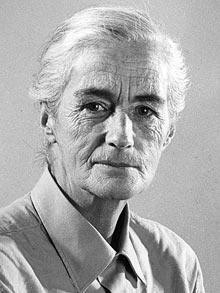
Born in Newmarket, England in 1912, Lambton, known to her friends as “Nancy” was born into the English aristocracy— the granddaughter of the second Earl of Durham no less. She rose to the heights of British academic life; becoming Chair in Persian at the School of Oriental and African Studies (SOAS) in 1953, where she had obtained her undergraduate degree (1935) and PhD (1939) under the supervision of Sir Edward Denison Ross. While a young student, she was mentored by Orientalist luminaries like Sir Hamilton Gibb, Sir Harold Bailey, Vladimir Minorsky and Arthur Tritton. During her first travels to Iran in the 1930s, she made the acquaintance of Sur-e Esrafil (Mirza Qasem Khan), the philosopher-literatus-statesman Mohammad Ali Forughi, the inimitable lexicographer, Ali Akbar Dehkhoda, and had even been taught Persian by Seyed Hasan Taqizadeh, another distinguished scholar-statesman.
During WWII, Lambton worked in the British Legation as press attaché to the British ambassador, Sir Reader Bullard. Despite her deep respect for him, Lambton acknowledged Bullard’s belief in Persian “deviousness” in the obituary she wrote for him in 1977.
As Shaul Bakhash has argued, Lambton wrote a memorandum to Bullard on 1 May 1941, which had deeply influenced British thinking regarding the fate of Reza Shah. In her analysis, Lambton stated that British support for the Shah would prove “fatal” in the event of a German invasion. As a result, Bullard concluded that unless the Shah was removed, the majority of Iranians might welcome a German invasion due to the Shah’s widespread identification with British machinations. Three weeks into the Allied occupation, Eden and Churchill finally endorsed the decision to remove the monarch.
Lambton is credited with authoring the BBC Persian service’s famous broadcast savaging Reza Shah and enumerating the myriad abuses of power, which had occurred under his rule following the Allied invasion and occupation of the country in August 1941. Some have speculated that this broadcast, in particular, sparked the king’s abdication.
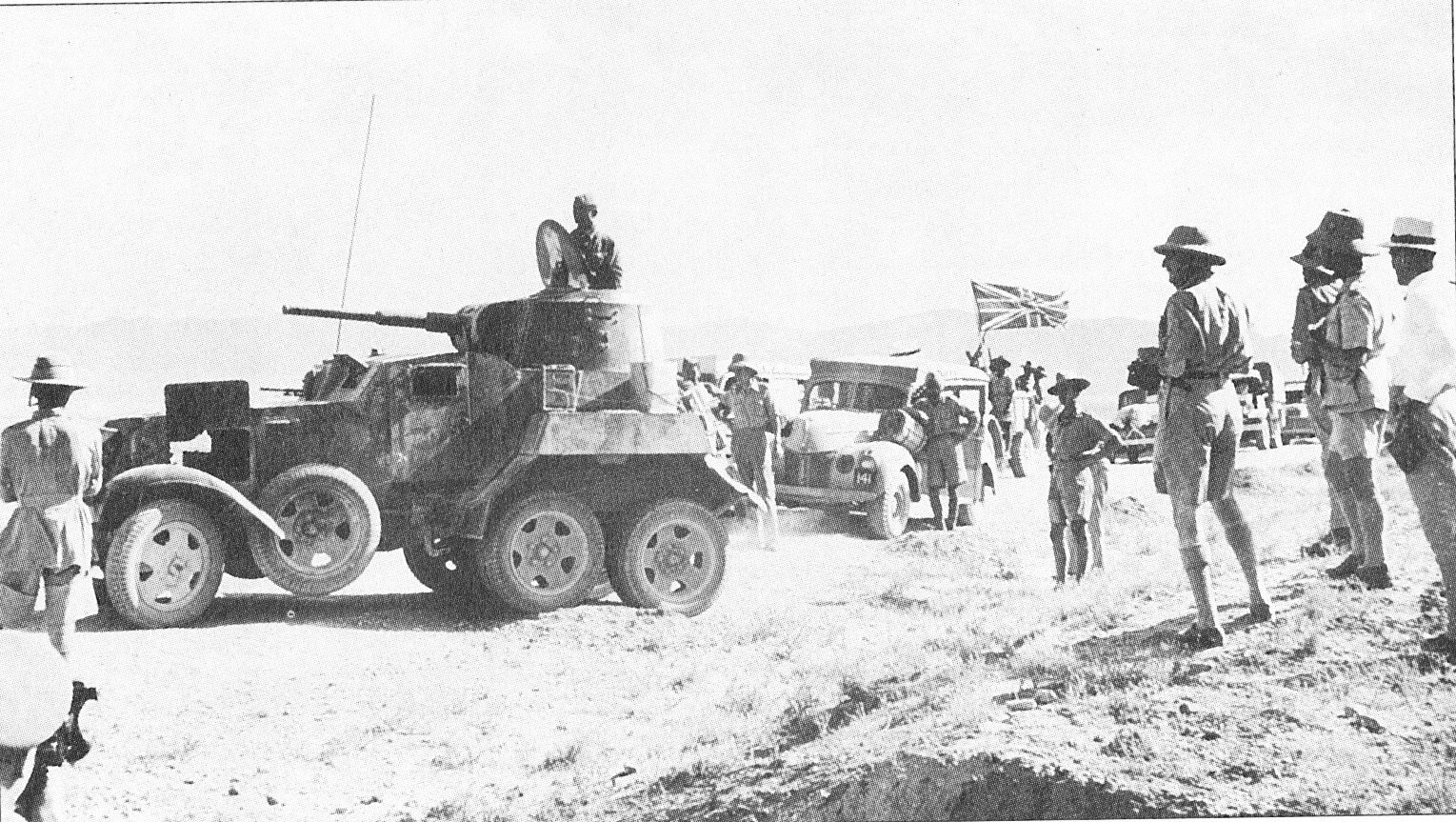
In the course of the war, she worked for the Ministry of Information and was aware of the Special Operations Executive‘s activities. During this period, she became acquainted with the Anglophile operatives, the Rashidiyan brothers, and essentially oversaw propaganda and public relations in support of the Allies, forging ties with Iranians from all walks of life and across the political spectrum. For her assiduous service, she would be awarded the OBE (Officer of the Order of the British Empire) in 1942.
She came to confidently speak of a “Persian mind,” “Persian mentality,” and believed in Iranians’ incapacity for independent thought. The Persian, she held, had no concept of the individual.
After the war, Lambton’s first lectureship at SOAS was funded by the Anglo-Iranian Oil Company (known today as BP). She played a vital role in training its employees, as well as British Council representatives, FCO staff waiting to be dispatched to Tehran and Afghanistan, military personnel and businessmen. The AIOC regularly sought her advice and solicited her policy recommendations. Her seminal work Landlord and Peasant in Persia was published in 1953 and remains a unique document on the development of agrarian life and relations from the eighth century till the modern period.
Her most infamous moment came with her implacable opposition to the nationalist government of Dr Mohammad Mosaddeq, who had nationalized Iranian oil in 1951. Her colonial contempt for the European-educated aristocrat, as well as her inability to appreciate that Iranians might be capable of a “national consciousness” (she did appear to reconsider this three decades later) led her to revile him and his programme. Iranians were prohibited from asserting their sovereign rights and nationalising their country’s most vital natural resource; it was an affront to the Empire. The only way compromise might be achieved was through the overthrow of “old Mossy,” as many in the diplomatic service referred to him.
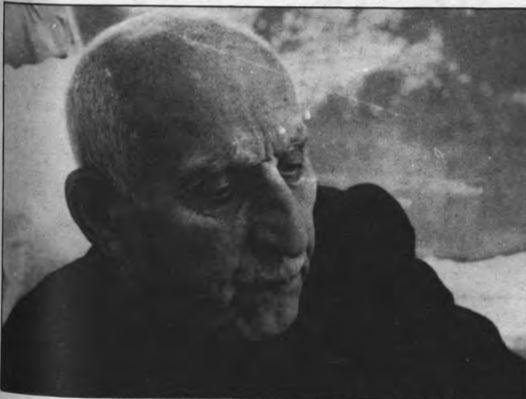
Demonstrating the great synergy of prejudice shared by old-school Orientalists like Lambton, the Foreign Office and Western media, Mosaddeq was invariably described as “impervious to reason,” “fanatical,” “obstinate,” and “menacing.” What was fashioned for public consumption in Western capitals in its stead was an infantilized, absurd, irrational, yet cunning and mendacious Oriental, without rhyme or reason.
Lambton fiercely advocated for the overthrow of Mossadeq’s government and had the ear of the Conservative Foreign Secretary, Sir Anthony Eden, who as it happened, had read Persian and Arabic at Oxford. As historian Ervand Abrahamian has noted, it was at this juncture that she “strongly urged the Foreign Office to keep a ‘steady nerve’ and wait for [Mosaddeq] to fall. She insisted, ‘Our own unofficial efforts to undermine him are making good progress. If we agree to discuss and compromise with him, the effort will strengthen him.’” She added that Americans who talk of compromise are “wrong and do not have the experience or psychological insight” (The Coup, p. 90). Her dogmatic belief in Iranians’ unwieldy irrationalism was indissociable from her advocacy of a hawkish and predatory policy, the aftermath of which has left an indelible and traumatising impact on the polity till this day.
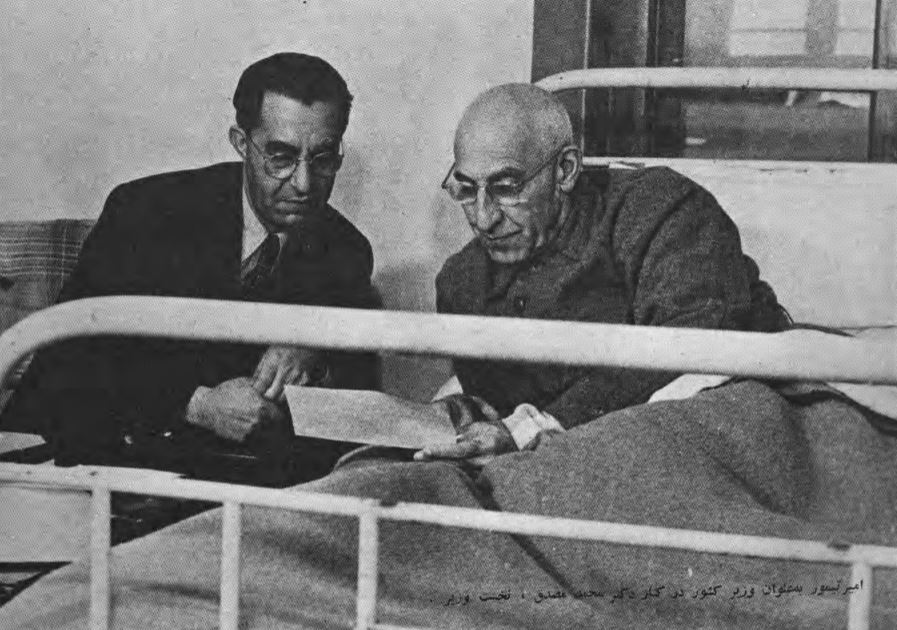
By June 1951, she recommended that her friend, Robert Charles Zaehner (d. 1974) return to Iran to reactivate Anglophile saboteur networks, most prominently the dubious Rashidiyan brothers, to advance British interests and covertly subvert the Mosaddeq government from inside the country. Zaehner was a fellow Iran scholar based at All Souls College, Oxford who had served in the secret services during WWII, and Roger Louis has located the origins of the coup to oust Mosaddeq in the “Zaehner mission” and Lambton’s unrelenting efforts. When this didn’t prove as efficacious as had been hoped, the Eisenhower administration and the CIA’s Kermit Roosevelt stepped in to follow through.
In his book, Behind the 1953 Coup in Iran, historian Ali Rahnema has argued that Lambton may well have stayed at the home of one of the Rashidiyan brothers during the Mosaddeq period, and would frequent their residence on later travels. The Anglophile operatives had received ample funds from the British government to subvert Mosaddeq and were in her close circle of Iranian friends. She had also been on excellent terms with General Teymur Bakhtiar, the first head of SAVAK, the Shah’s dreaded secret service, until his fall from grace and flight into exile. He would be assassinated by SAVAK agents in Iraq in 1970.
Mosaddeq was finally overthrown in the summer of 1953. Lambton was then responsible for correcting Persian-language documents germane to the new oil consortium formed in agreement with the post-coup government of General Fazlollah Zahedi in 1954. These years serendipitously coincided with her becoming Chair of Persian at SOAS and her ascent to the apogee of British academic life. Zaehner would go on to become Spalding Professor of Eastern Religions and Ethics at All Souls.
Following this turbulent period, Lambton continued her research on agrarian reform and had a very real impact on the initial thrust on this aspect of the “White Revolution.” Throughout the 1960s, she travelled the entirety of the country with the help of Iranian officials, inspecting initiatives that many (including Lambton) believed would create a new class of independent smallholding peasant farmers. The results of the land reforms, however, were highly uneven and predominantly steered towards the mechanisation of agriculture and the penetration of industrialised agri-business into the provinces.
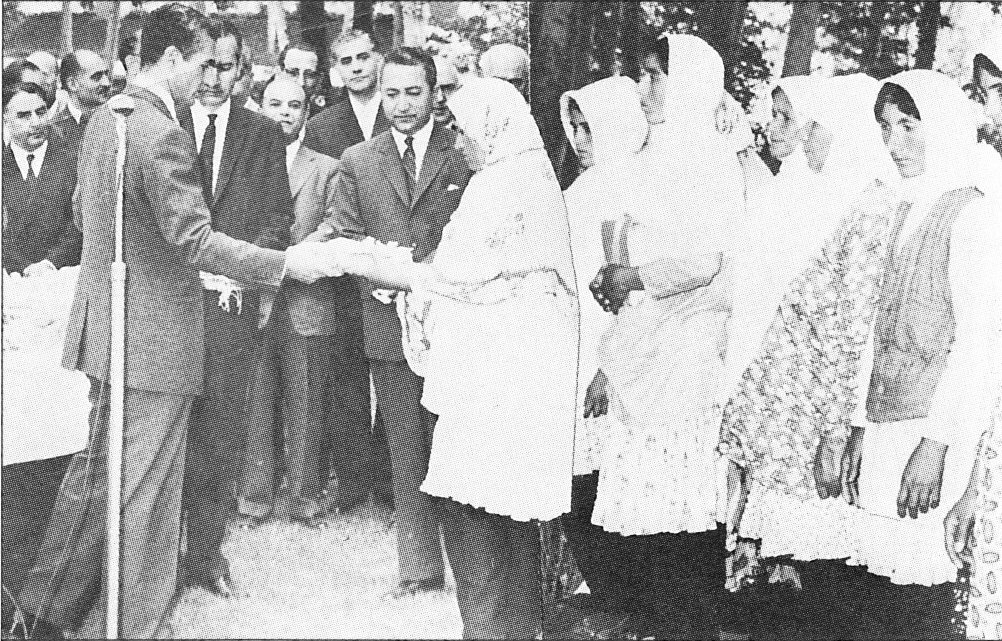
Lambton was reportedly greatly disheartened by the eventual tenor of the agricultural reforms, which failed to meet her high hopes. Her poor opinion of the Shah remained intact and was duly reciprocated. It was also in 1964 that she penned a very well-known article on the gathering of Iranian religious and political personalities on the reconsideration of the Shiʿi institution of marjaʿiyyat, attended by Ayatollahs Morteza Motahhari, Seyed Mahmud Taleqani, Seyed Mohammad Beheshti and Mehdi Bazargan (the first Prime Minister of the Provisional Revolutionary Government), amongst others. As a result, some admirers have credited her with predicting the Iranian Revolution of 1979. A somewhat fanciful conclusion, which neglects to mention that several Iranian cities had seen major protests on 5 June 1963, as news of Ayatollah Seyyed Ruhollah Khomeini’s arrest following his open challenge to the Shah and his White Revolution spread across the country.
Lambton was no clairvoyant, but given her interests and proximity to the British foreign policy establishment, she diligently kept up with contemporary developments. She cited the controversy surrounding Khomeini and the implications of the cleric’s comparison of the Shah to the execrated Umayyad caliph, Yazid, whose forces slaughtered Imam Hossein and his companions in 680 AD.
Her explanation as to why religious forces dominated the protests, however, left much to be desired: “As long as the fundamental duty of the believer in general, and of the religious classes in particular, is (to enjoin what is good and to forbid what is evil) such an [religious] expression is likely, perhaps, always to be the case.”

By the late 1960s she came to refocus most of her attention on the more strictly academic interests with which she had first began, namely the Seljuk period (the topic of her doctoral thesis) and the history of Islamic political thought. By all accounts following retirement, she continued along this path, contributing tens of often obscure and exacting entries to the Encyclopaedia of Islam, and pursuing her more arcane research interests well into her nineties. She never returned to Iran following the revolution of 1979.
Like Gertrude Bell before her, Lambton had rebelled against the patriarchal norms of British society, and was aided in this endeavour by her aristocratic status and its corresponding privileges. There is little doubt that she contributed to the study of Iranian history and society, while also being fully complicit and integrated into the capitalist-imperial matrix which sought to snuff out the nationalist-popular movement, and subsequently unleashed a host of destructive repercussions which would resonate for many decades to come. She participated in the abject dehumanisation of Iranians and deprived them of meaningful agency, effectively rationalising their neo-colonial domination. Though one should certainly exercise caution before reducing her many seminal contributions to the mere naked exercise of power and interests, such a conclusion might indeed be considered churlish and untrue, it must surely be acknowledged that Lambton’s is a highly vexing, at times vile legacy we should all recall with a critical eye.
The legacy of Lambton and other scholars, who have sought to straddle the boundaries of policymaking in the metropole and seemingly apolitical scholarly preoccupations, is a complex one whose tensions and contradictions cannot possibly be resolved here. The dangers of instrumentalizing the cultural and intellectual capital of the academy to the end of imperial political and economic objectives, should be obvious enough. It is, however, a challenge which continues to pose itself to area scholars and the fields they inhabit in the present, even if its latter day incarnations may well have changed and evolved in novel and unexpected ways the likes of Lambton and her forebears could have not possibly foreseen.
References and Further Reading
Ann K.S. Lambton, State and Government in Medieval Islam, 1981.
Ann K.S. Lambton, Recollections of Iran in the mid‐twentieth century, Asian Affairs, Vol. 19, 1988.
Ann K. S. Lambton, The Impact of the West on Persia, International Affairs, Vol. 33, No. 1 (Jan., 1957), pp. 12-25.
The Guardian: Obituary: Ann Lambton
David O. Morgan, Ann K.S. Lambton (1912–2008) and Persian Studies, Journal of the Royal Asiatic Society, Volume 21, Issue 1, 2011.
John Guerny, Ann S.K. Lambton, Biographical Memoirs of Fellows of the British Academy, XII, 2013.
Peter Chelkowski, In Memoriam: Professor Ann K.S. Lambton, Iranian Studies, vol 42, no. 1, 2009.
Encyclopedia Iranica: Robert Charles Zaehner
The Secret CIA History of the Iran Coup, 1953
Ervand Abrahamian, The Coup: 1953, The CIA, and The Roots of Modern U.S.-Iranian Relations.
Ervand Abrahamian, The 1953 Coup in Iran, Science & Society, Vol. 65, No. 2 (Summer, 2001), pp. 182-215.
Ali Rahnema, Behind the 1953 Coup in Iran: Thugs, Turncoats, Soldiers, and Spooks.
Kermit Roosevelt, Countercoup: the Struggle for the Control of Iran, 1979.












2 comments
Nice post!